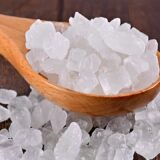Ayurvedic Remedies for Worms in Adults You Need to Try
Intestinal worms, or parasitic infestations, are a common health issue that can affect people of all ages, including adults. While children are often the most susceptible, adults, too, can experience the debilitating effects of worm infections, which can disrupt digestion and lead to other serious health concerns. 
For centuries, Ayurvedic medicine, a traditional system of natural healing, has offered holistic solutions to various health problems, including worm infestations. In this article, we will explore the Ayurvedic approach to treating worms in adults, including common herbs, dietary recommendations, and lifestyle practices.
Understanding Intestinal Worms in Adults
Intestinal worms, or Krimi in Ayurvedic terminology, are parasitic organisms that live in the gastrointestinal tract and feed off their host. In adults, these worms can lead to a range of digestive and systemic symptoms, such as abdominal pain, bloating, weight loss, fatigue, nausea, and even anemia in severe cases.
Common Types of Intestinal Worms in Adults
Intestinal worms are a common health issue for adults, and they come in several types, each causing distinct symptoms and health challenges:
- Roundworms (Ascaris lumbricoides): These large parasitic worms are among the most common and can lead to severe digestive problems. As they grow and reproduce, roundworms can cause bloating, pain, and malnutrition.
- Tapeworms (Taenia spp.): Tapeworms typically enter the body through undercooked beef or pork. They can cause significant weight loss, malnutrition, and discomfort in the abdomen.
- Hookworms (Ancylostoma duodenale): Often contracted through contaminated soil, hookworms enter the body via the skin and travel to the intestines, where they can attach to the walls and cause blood loss, leading to fatigue and anemia.
- Pinworms (Enterobius vermicularis): While more common in children, adults can also get infected with pinworms. These tiny parasites are spread through contaminated surfaces or food, causing itching around the anus and poor sleep.
Each of these worm types can affect digestion and overall health, making it crucial to recognize the symptoms early and seek treatment.
Causes and Risk Factors of Worm Infections in Adults
Worm infections are primarily caused by exposure to contaminated food, water, or environments, and they are often linked to poor hygiene. Risk factors for adults include:
- Consuming Undercooked or Contaminated Food: Eating undercooked meat (especially pork, beef, or seafood) or unwashed vegetables can introduce parasites into the body.
- Travel to Endemic Areas: Traveling to regions where parasitic infections are more common increases the risk of contracting worms, especially if sanitation is poor.
- Poor Sanitation and Hygiene: Inadequate handwashing or exposure to contaminated water sources can lead to infection, particularly in areas with inadequate waste disposal systems.
- Close Contact with Pets or Animals: Pets, especially those that roam outdoors, can carry worms like hookworms or roundworms, which can be transmitted to humans through contact with feces or contaminated environments.
Understanding these causes and risk factors can help you take the necessary precautions to avoid worm infections.
Ayurvedic View on Worm Infestations
In Ayurveda, the focus is on maintaining the balance of the three primary doshas—Vata, Pitta, and Kapha—which govern all bodily functions, including digestion.
Digestive health is of paramount importance in Ayurveda because it is believed that the majority of health problems arise from digestive imbalances, leading to the accumulation of toxins (Ama) that attract and harbor parasites like worms.
The concept of Krimi (parasites) is deeply embedded in Ayurvedic philosophy. According to Ayurveda, worms infest the body when there is an imbalance in the Agni, or digestive fire.
A weakened Agni leads to poor digestion and the accumulation of undigested food particles, which form Ama, creating an ideal environment for parasites to thrive.
Worm infestations are seen as a manifestation of digestive and immune system imbalances. Ayurveda recommends a holistic approach, combining herbal remedies, dietary changes, and lifestyle practices to restore digestive balance and expel the worms.
Ayurvedic Herbal Remedies for Worms in Adults
Ayurvedic medicine offers a variety of herbs that are effective in treating parasitic infections. These herbs are not only anti-parasitic but also support overall digestive health and immunity.
Below are some commonly used Ayurvedic herbs for treating worms in adults:
1. Vidanga (Embelia ribes)
Vidanga is one of the most potent Ayurvedic herbs used to expel intestinal worms. It has a long history of use for cleansing the digestive system and eliminating parasites.
Vidanga is particularly effective in eliminating roundworms, hookworms, and tapeworms. It works by improving digestion, stimulating Agni, and helping the body to expel toxins and parasites.
2. Neem (Azadirachta indica)
Neem is a well-known herb with strong anti-parasitic, anti-bacterial, and anti-fungal properties. It is used in Ayurveda to purify the blood, detoxify the body, and eliminate worms.
Neem leaves can be consumed in various forms, such as powder, paste, or neem oil, to fight worm infestations.
3. Garlic (Allium sativum)
Garlic is another versatile herb known for its ability to combat parasitic infections. It contains allicin, which has anti-parasitic properties that help kill or expel worms from the intestines.
Garlic is also beneficial for boosting the immune system and improving overall digestive health.
4. Wormwood (Artemisia absinthium)
As the name suggests, wormwood is traditionally used to treat worms. It has a long history in Ayurvedic and Western medicine for its anti-parasitic action.
Wormwood is effective against a wide range of intestinal worms, including tapeworms and roundworms. It works by stimulating digestion and detoxifying the intestines.
5. Turmeric (Curcuma longa)
Turmeric is revered for its anti-inflammatory, antimicrobial, and antioxidant properties. It helps in reducing inflammation caused by worms in the intestines and promotes overall digestive health.
Curcumin, the active compound in turmeric, is also believed to have anti-parasitic properties that aid in eliminating worms.
6. Pippali (Piper longum)
Pippali, or long pepper, is an important herb in Ayurveda for improving digestion and stimulating the body’s natural detoxification processes.
It is particularly helpful in treating worms by enhancing the body’s ability to expel them from the digestive tract.
Ayurvedic Lifestyle and Dietary Recommendations
In addition to herbal treatments, Ayurveda emphasizes the importance of a balanced diet and healthy lifestyle practices to combat and prevent worm infestations.
Dietary Recommendations
- Avoid Excessive Sugar and Processed Foods: Excessive consumption of sugar and processed foods can weaken digestion and create an environment conducive to parasitic growth. It is advisable to reduce or eliminate sugary foods, refined carbohydrates, and junk foods from the diet.
- Increase Fiber and Whole Foods: Eating high-fiber foods like vegetables, fruits, and whole grains supports regular bowel movements and helps in expelling parasites from the intestines.
- Include Probiotics: Probiotics such as yogurt, buttermilk, and fermented foods can help restore healthy gut flora, boosting the immune system and supporting the body’s ability to fight parasitic infections.
Lifestyle Tips
- Maintain Hygiene: Regular handwashing, especially before eating and after using the restroom, is crucial in preventing worm infestations.
- Detoxification Practices: Ayurvedic detox techniques, such as panchakarma (a series of therapeutic treatments), can be used to purify the body and strengthen immunity.
- Yoga and Breathing Exercises: Practices like yoga and pranayama (breathing exercises) can enhance digestive health, improve circulation, and promote the expulsion of toxins from the body.
Ayurvedic Treatments for Strengthening Immunity
A strong immune system is key to preventing worm infestations. Ayurveda offers a variety of herbs and practices that can help boost immunity and restore balance to the digestive system.
1. Ashwagandha (Withania somnifera): Ashwagandha is a powerful adaptogen that helps the body cope with stress and enhances overall vitality. It is known to improve immune function, support digestion, and help fight infections, including parasitic infestations.
2. Guduchi (Tinospora cordifolia): Guduchi, or giloy, is another immune-boosting herb that can help strengthen the body’s natural defense mechanisms. It has anti-inflammatory, anti-viral, and anti-bacterial properties, making it an effective tool in fighting parasitic infections.
3. Amla (Emblica officinalis): Amla, or Indian gooseberry, is rich in Vitamin C and antioxidants, which support the immune system. It also promotes digestion and detoxification, which can help in eliminating worms from the body.
Top 10 Ayurvedic Medicine for Worm Infections in Adults
1. Krimi-Vish (Krimi Har)
- Key Ingredients: Vidanga (Embelia ribes), Neem (Azadirachta indica), and Pippali (Piper longum).
- Uses: This formulation is designed to help expel intestinal worms and clear toxins from the digestive tract. Vidanga, in particular, is well-known for its anti-worm properties.
2. Kutaj Ghan Vati
- Key Ingredients: Kutaj (Holarrhena antidysenterica), which has anti-parasitic properties.
- Uses: Known for treating various gastrointestinal issues, including infections caused by worms, especially dysentery and diarrhea. It can help in expelling parasites from the intestines.
3. Baidyanath Krimi-Bye (Krimi-Cleanse)
- Key Ingredients: Neem (Azadirachta indica), Garlic (Allium sativum), and Turmeric (Curcuma longa).
- Uses: This proprietary medicine is effective in treating intestinal worm infestations, supporting digestive health, and boosting immunity. Neem and garlic are key ingredients known for their anti-parasitic and detoxifying properties.
4. Dabur Krimex Syrup
- Key Ingredients: Pippali (Piper longum), Vidanga (Embelia ribes), and Neem (Azadirachta indica).
- Uses: An effective remedy for expelling intestinal worms, Krimex syrup supports digestion and helps in detoxifying the body by eliminating parasitic toxins.
5. Patanjali Krimi Nashak
- Key Ingredients: Kalmegh (Andrographis paniculata), Neem (Azadirachta indica), and Haritaki (Terminalia chebula).
- Uses: This formulation targets a wide range of parasitic infections, helping to expel worms from the intestines and cleanse the body. It also supports the immune system and improves digestion.
6. Charak Krimimax
- Key Ingredients: Vidanga (Embelia ribes), Pippali (Piper longum), and Guggulu (Commiphora wightii).
- Uses: Designed for treating both digestive and parasitic issues, Krimimax helps remove worms from the intestines, stimulates digestion, and improves overall gut health.
7. Himalaya Wormout
- Key Ingredients: Vidanga (Embelia ribes), Bhringraj (Eclipta alba), and Neem (Azadirachta indica).
- Uses: Himalaya Wormout is formulated to treat intestinal worms, particularly in children and adults. It helps in expelling worms, purifying the blood, and improving digestive health.
8. Sri Sri Tattva Krimi Kanti
- Key Ingredients: Vidanga (Embelia ribes), Triphala (a blend of Amalaki, Haritaki, and Bibhitaki), and Turmeric (Curcuma longa).
- Uses: A comprehensive remedy for expelling worms from the intestines and supporting digestive function. This formulation also helps in detoxification and promoting overall gastrointestinal health.
9. Zandu Krimidhvansan
- Key Ingredients: Neem (Azadirachta indica), Kalmegh (Andrographis paniculata), and Pippali (Piper longum).
- Uses: Known for its anti-parasitic properties, Krimidhvansan helps in cleansing the intestines by eliminating harmful worms and supporting digestive and immune health.
10. Kottakkal Krimithalakam
- Key Ingredients: Vidanga (Embelia ribes), Pippali (Piper longum), and Neem (Azadirachta indica).
- Uses: A traditional Ayurvedic remedy for expelling worms and restoring balance to the digestive system. It helps purify the blood and maintain healthy digestion.
Note:
It’s important to consult with an Ayurvedic practitioner before starting any Ayurvedic remedy, especially if you are currently on medication or have underlying health conditions. These proprietary formulations are generally safe when used appropriately but should be taken under professional guidance to ensure the right dosage and effectiveness.
Precautions and Considerations in Ayurvedic Treatment
While Ayurvedic treatments for worms are generally safe, it is important to exercise caution and consult an Ayurvedic practitioner before starting any new treatment, especially if you are already on prescription medications. Some Ayurvedic herbs may interact with conventional drugs, and incorrect dosages can lead to side effects.
Additionally, suppose symptoms persist or worsen despite treatment. In that case, it is important to seek medical attention, as untreated worm infestations can lead to complications such as malnutrition, anemia, or damage to internal organs.
FAQs.
1. Which Ayurvedic medicine is best for worms?
Ayurvedic medicines like Krimi-Vish, Krimi-Bye, and Dabur Krimex Syrup, containing herbs such as Vidanga, Neem, and Pippali, are effective in treating worms by expelling them and strengthening digestion.
2. How to deworm adults naturally?
Herbal remedies like garlic, Neem, Papaya seeds, and Wormwood are natural ways to expel worms, along with maintaining good hygiene and eating fiber-rich foods.
3. What is the fastest way to get rid of worms in adults?
Prescription medications like Albendazole or Mebendazole are fast-acting for treating worms, while natural remedies like Neem and Garlic can also be effective.
4. How to deworm as per Ayurveda?
Ayurveda uses herbs like Vidanga, Neem, and Pippali to expel worms, along with detoxifying practices and a digestion-strengthening diet.
5. What is the best drink for worms?
Drinks like Neem tea, Garlic water, and Ginger tea can help kill parasites and promote digestive health.
6. What is the best home remedy for worms?
Home remedies such as garlic, papaya seeds, and coconut are effective in naturally expelling worms from the body.
7. What kills all worms in humans?
Medications like Albendazole and Mebendazole, along with natural treatments like Neem and Garlic, can kill a broad range of worms in humans.
8. How to remove worms from the stomach?
Herbal remedies such as Neem, Garlic, and Papaya seeds, combined with dietary changes, can help expel worms from the stomach.
9. How do I know if I have worms?
Symptoms like abdominal pain, weight loss, itching around the anus, or visible worms in stool indicate a possible worm infection.
10. How do you self check for worms?
Look for signs like itching around the anus, digestive issues, visible worms in stool, or general fatigue, and consult a doctor for confirmation.
11. When is the best time to deworm adults?
Adults should deworm when symptoms appear or as a preventive measure every 6-12 months, particularly after travel to high-risk areas.
12. What food kills parasites?
Garlic, papaya seeds, pumpkin seeds, and coconut are foods known to kill or expel intestinal parasites.
Ayurveda offers a holistic and natural approach to treating worms in adults, focusing on restoring digestive balance, strengthening immunity, and using time-tested herbs to expel parasites from the body
References
- Medicinal plants as a source of antiparasitics: an overview of experimental studies(1)
- Antiparasitic treatment using herbs and spices: A review of the literature of the phototherapy(2)
- Antiparasitic Efficacy of Herbal Extracts and Active Compound Against Gyrodactylus kobayashii in Carassius auratus(3)

























